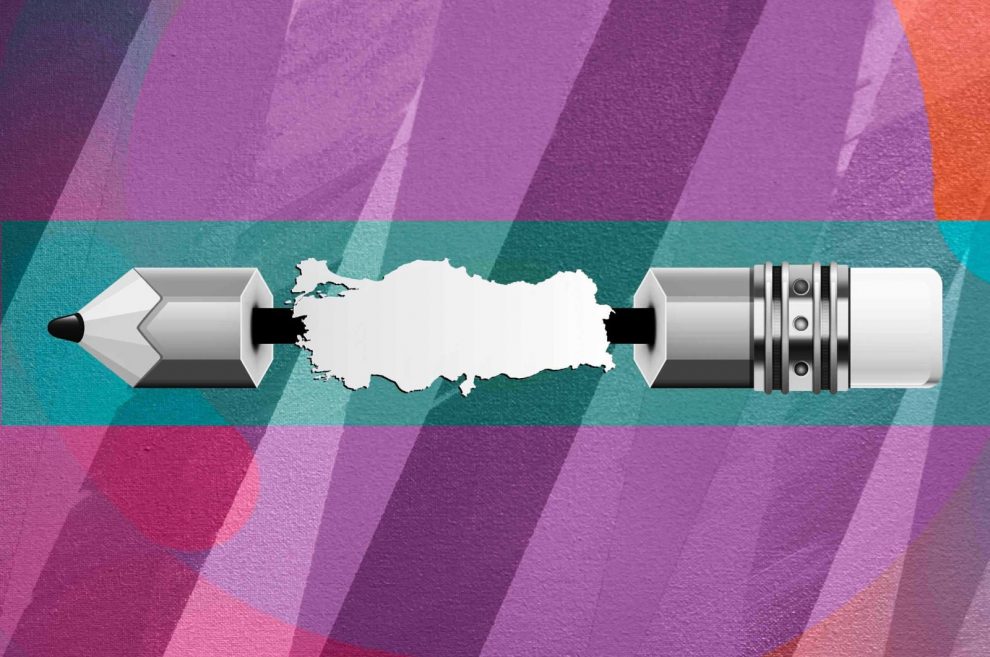Turkey’s process of modernization began in the 18th-century Ottoman Empire. The Edict of Gülhane in 1839, a cornerstone of modern state-building, aimed at transforming the traditional Ottoman state in the image of modern Western states. The challenge that the Ottoman bureaucrats faced was to restructure the empire as a modern state while protecting the centuries-old imperial traditions and customs. In the emerging age of Western nation-states; however, the Ottomans, one of the last empires on Earth, lived out its lifespan.
The modern reforms of Ottoman sultans led to the creation of a modern bureaucracy. Educated in modern Western culture, this new class of bureaucracy seized political power and monopolized the leadership of Turkey’s modernization. Their triumph in terms of seizing the political power was so certain that a strong bureaucratic tutelage was created in civilian politics, which lasted until the most recent decades of the Turkish republic.
Being the successor of the Ottoman Empire, the Republic of Turkey designed its process of modern nation-state building on the model of Western European countries. During the first three decades of the republic, however, Turkey was ruled by a one-party government of the Republican People’s Party (CHP). When combined with enduring economic stagnation, this lack of democratic rule led the country to fall far behind European nations in terms of political and economic development.
With its transition to a multiparty system in 1950, Turkey entered a phase of economic growth and democratic consolidation. Despite successive military interventions in 1960, 1971 and 1980, Turkey did not divert from its democratic course. During Turgut Özal’s presidency, Turkey integrated into the global economy through radical reforms in the economy and bureaucracy.
This economic growth, together with an increase in migration from rural to urban areas, led to a dramatic increase in schooling rates. The educational boom was supported by the widespread use of computers in schools and the success of educational experiments, such as the foundation of Anatolian High Schools and Science High Schools.
When the Justice and Development Party (AK Party) came to power in 2002, one of the greatest problems in Turkey’s education system was the lack of sufficient schools and classrooms. Under the leadership of Recep Tayyip Erdoğan, the AK Party governments succeeded in resolving this immense infrastructural problem in the education sector.
The new initiatives
Today, the Ministry of National Education is developing a new vision to make radical changes and embark on new initiatives in the Turkish educational system. The following topics constitute some of the main goals of this new vision.
Extending equality of opportunity in education: It is crucial to eliminate the educational inequalities between rural and urban areas, eastern and western cities, suburbs and city centers throughout the country. To realize the long-term democratic ideal of equality of opportunity in other fields, it is indispensable to extend equality of opportunity in education.
Improving the quality of teachers: Education is an ecosystem that is composed of students, teachers, learning environments and tools. Apart from introducing the most advanced technological tools, it is crucial to focus on the quality of teachers to improve the quality of education as a whole.
Strengthening vocational education: Being a country that has placed production at the center of its economy, Turkey requires and will always require intermediate staff in the fields of industry and technology. As the Ministry of National Education strengthens vocational education, the aforementioned need for intermediate staff between education and the labor force will be efficiently met.
Dissemination of preschool education: In terms of preschool education, Turkey has still been far behind the advanced European countries. For the Ministry of National Education, the dissemination of preschool education is one of the most urgent tasks.
Source: Daily Sabah






